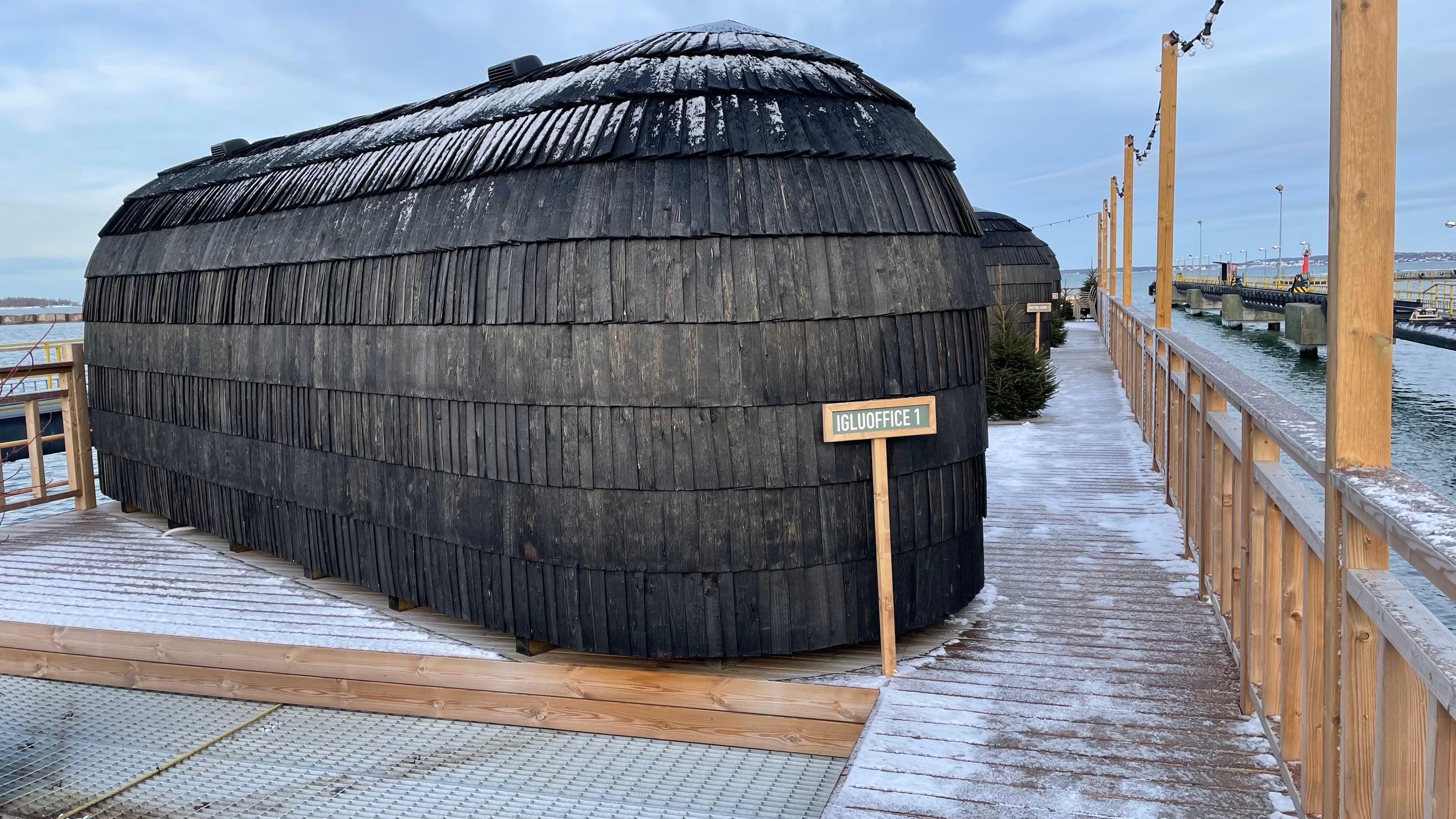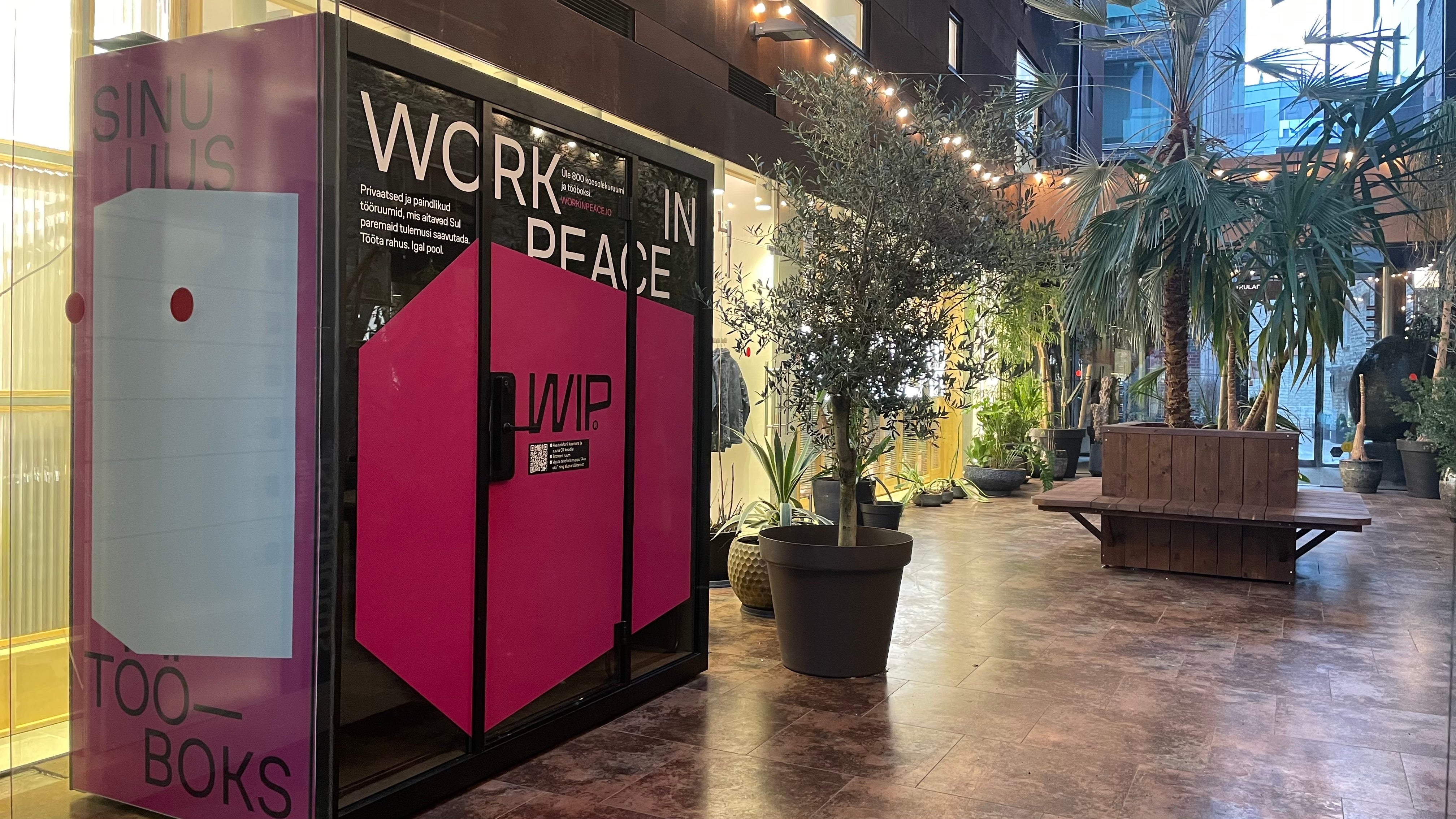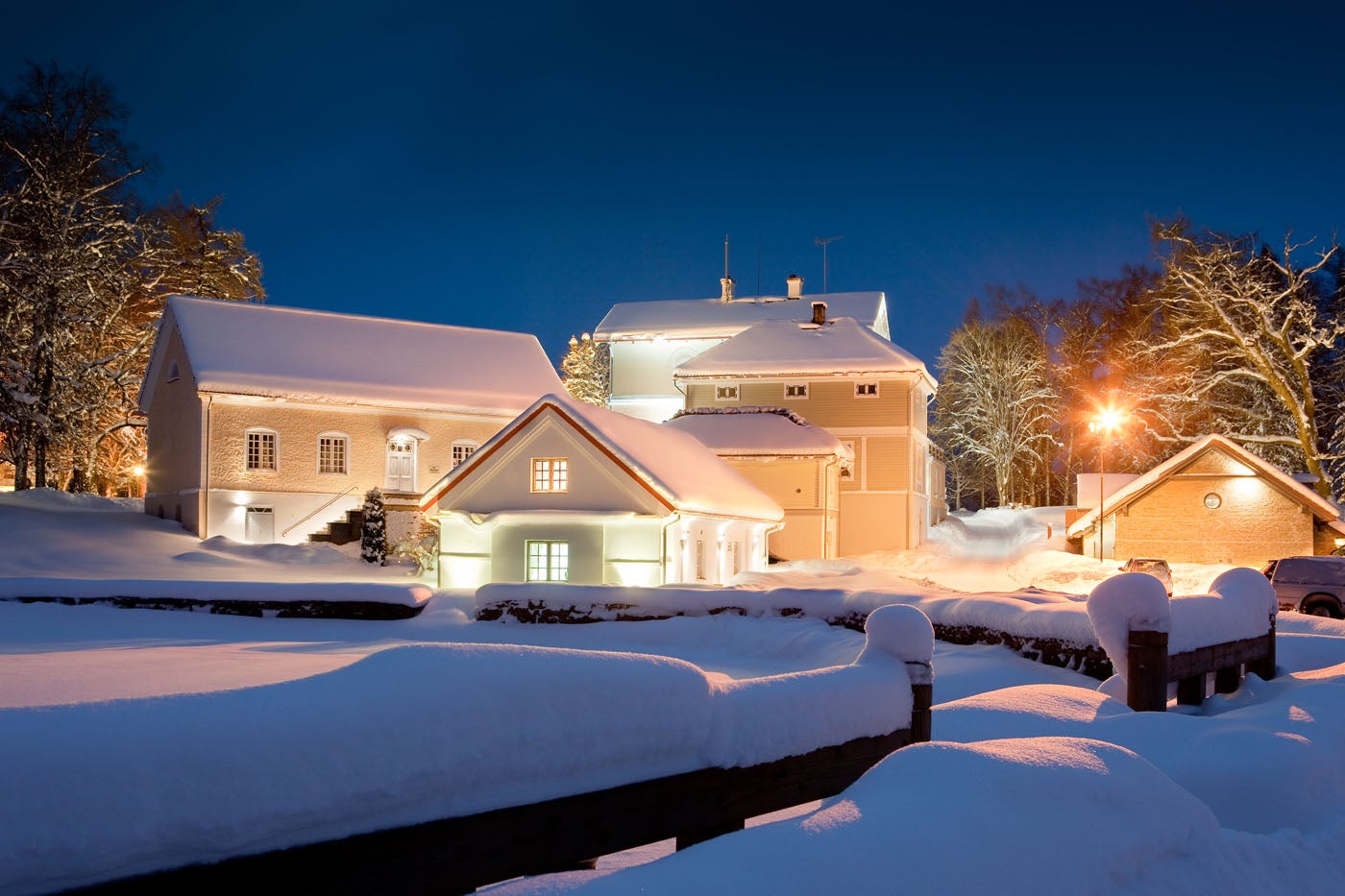The Independent's journalism is supported by our readers. When you purchase through links on our site, we may earn commission.
Tallinn’s got talent: Why Estonia’s capital is the best city in the world for digital nomads
Remoting working has never been easier – as James Ware discovered when he spent a week in Europe’s undisputed king of digital-first design

“Estonia is not somewhere that can provide you with the sandy beaches of Barbados.” As I jig my way through the blizzard from the sauna to the sea, the words of Linnar Viik, a founding father of Estonia’s digital-first nation so integral that he’s known as Mr Internet, ring in my ears.
One of the great challenges of remote work can be staying energised. Lowering myself down the icicle-clad ladder to submerge myself in the Gulf of Finland, the adrenaline rush confirms it’s a problem I won’t be having after this particularly long workday. Running back through the fresh snow in my trunks as the frost seizes my ankles, I must resemble a penguin that has consumed a triple-shot espresso martini.

Here at Iglupark, set on land which was previously the chief submarine shipyard of the Russian Empire, this is a routine way to end the working day. As well as their Iglusaunas, which count David Beckham and Guy Ritchie among their owners, the complex also offers a smattering of Igluoffices, providing workspaces set by the sea. A popular package for remote teams is an afternoon in the office to brainstorm before hitting the sauna. If that’s more excitement than you can handle in a workday, there’s even the option to stay the night in a sea-view Igluhut.
As unusual as this experience was, it proved representative of my week working from Tallinn, recently ranked by one blog as the best city in the world for remote workers. As Viik had suggested, Tallinn is an optimal base, “not because of one wow thing, but a gazillion small things that accumulate into your experience”.
Tallinn is such an optimal base, ‘Not because of one wow thing, but a gazillion small things that accumulate into your experience’
Setting up on my first day, I noticed how easily people worked, with none of the bashfulness of on-the-go working I’ve seen elsewhere. In the Brutalist surrounds of Telleskivi Creative City is Fika Cafe, aptly named after the Swedish practice of enjoying coffee and cake. My fellow caffeinators took meetings in person over artisanal flat whites and cardamom buns harmoniously alongside others doing so over Zoom. It had the laidback feel of Friends’s Central Perk cafe. If you’re hankering after privacy, you can rent one of Work In Peace’s cave-like booths located around the city, complete with a panoramic webcam and TV screen.
More pros were highlighted by the crew I encountered at coworking space Palo Alto Club. Its name evokes its setup: in one office there’s a framed award for “winning skydiving pitch”, like an elevator pitch in freefall (I’m glad that isn’t how I had to pitch this article). I live in London but rarely do I recall being in such a diverse group, finding myself meeting people from South Korea to Nigeria, Brazil to Belgium, all of whom have chosen to call Tallinn home.

Jose moved here from the Brazilian island city of Florianopolis, renowned for its sun, sea and supermodels. For him, “Tallinn is the perfect size. You don’t need to take a train for two hours to meet someone. In 20 minutes you can meet anyone here, grab a coffee, and go to work.”
I was able to chat with Martin Villig, cofounder of Bolt, Europe and Africa’s leading mobility platform currently valued at $8.4bn (£6.2m). He told me that this is all perfectly normal in Tallinn: “The ecosystem is small, all the famous guys, all the role models are accessible, so you can actually ask them for lunch and most of the guys are willing to come and talk to you, and share feedback.”

So ingrained is this digital-first culture within the fabric of Tallinn that even the graffiti uses start-up speak: a wall outside the old town bears the mantra, “process > result”. The reminders proliferate: my hotel, the Von Stackelberg, the townhouse of a Baltic baron restored with gloriously exposed brick walls, is proud to have been the first hotel in Estonia to have a computer in every room when it opened in 2004.
I’d heard before arriving that the internet infrastructure is so comprehensive that you could walk 100 miles from the city centre without losing wifi signal. Awaydays working from bogs have become popular, with surefire signal even there. An hour’s drive outside the city, I stayed at the rural retreat of Vihula Manor. En route, my transfer driver warned me the surrounding forests are wild enough to contain wolves and bears. Still, I took an hour’s video call just fine in my room, looking out over the snowy wilderness. I was told it’s becoming common for guests to come and stay for their whole work week, having all their meals taken care of and enjoying evenings in the spa.
Away days working from bogs have become popular, with surefire signal even there
Back in the city, everyone raved about the ease of Estonian life. Part of this, as Jose explains, is that “the country is prepared for English speakers. Contracts are in English, the gym is in English, all the government websites are in English too; that makes it so much easier for foreign people to come here”. Nelson from Nigeria, who has been here since 2015, said that, equally importantly, “there are laws to protect you as a foreigner and the crime rate is like zero”. Indeed, the only danger I was warned about by locals was falling icicles.
To make things even easier, every service is online, and foreigners can access them through the digital nomad visa – which launched in 2020 and allows location-independent workers to live in Estonia for up to a year – or e-residency, which in 2014 saw Estonia become the first country to allow foreigners to run a business in the country from anywhere in the world. Viik told me this online approach originated because Estonians “are not very extroverted people. Digital solutions suit our mindset and lifestyle very well, in the sense that I don’t want to stand in a queue in front of my municipality just to get some service, I would rather sit in my underwear in the evening in front of my computer to fill in the application and get my benefits.” With the end of January looming, I certainly envied Estonian residents completing their taxes in three minutes flat.

Life here is also more economical than in other European capitals. At legendary pancake house Kompressor in the old town, the menu of 29 pancakes is almost as whopping as the portions. Pancakes cost less than £4.50, and a pint is less than £3. On the table next to me, a foreign start-up crowd spoke blockchain babble. It’s this same combination of daring modernity grounded in a comfortable reality that I felt walking home that night, ankle-deep in fresh powder, against a backdrop of illuminated castle towers and city gates. It was like I’d spent my day working in a sci-fi film, only to end it with the reassurance of a classic historical novel.
For Bolt’s Martin Villig, these factors combine to make Tallinn “the best place to be in the world”. Palo Alto Club’s community manager, Kairi, explains with pride that Estonia is in such a positive position now because of the audacity of its forward-thinking internet policy known as the tiigrihupe, or “tiger leap” in English. Based on my Estonian experience, other countries’ tigers have got a lot of leaping to do to reach these heights.
Travel essentials
Getting there
Trying to fly less?
Estonia can be reached from the UK in three nights by taking the Eurostar from London to Paris, onward trains to Rostock in Germany, a ferry to Helsinki and a further ferry to Tallinn.
Fine with flying?
Ryanair flies direct from London Stansted to Tallinn.
Staying there
Von Stackelberg Hotel Tallinn has doubles from €80 (£67), B&B. vonstackelberghotel.com
Vihula Manor Country Club & Spa offers doubles from €99 (£83), B&B, including use of the pool and sauna. vihulamanor.com
Join our commenting forum
Join thought-provoking conversations, follow other Independent readers and see their replies
Comments
Bookmark popover
Removed from bookmarks